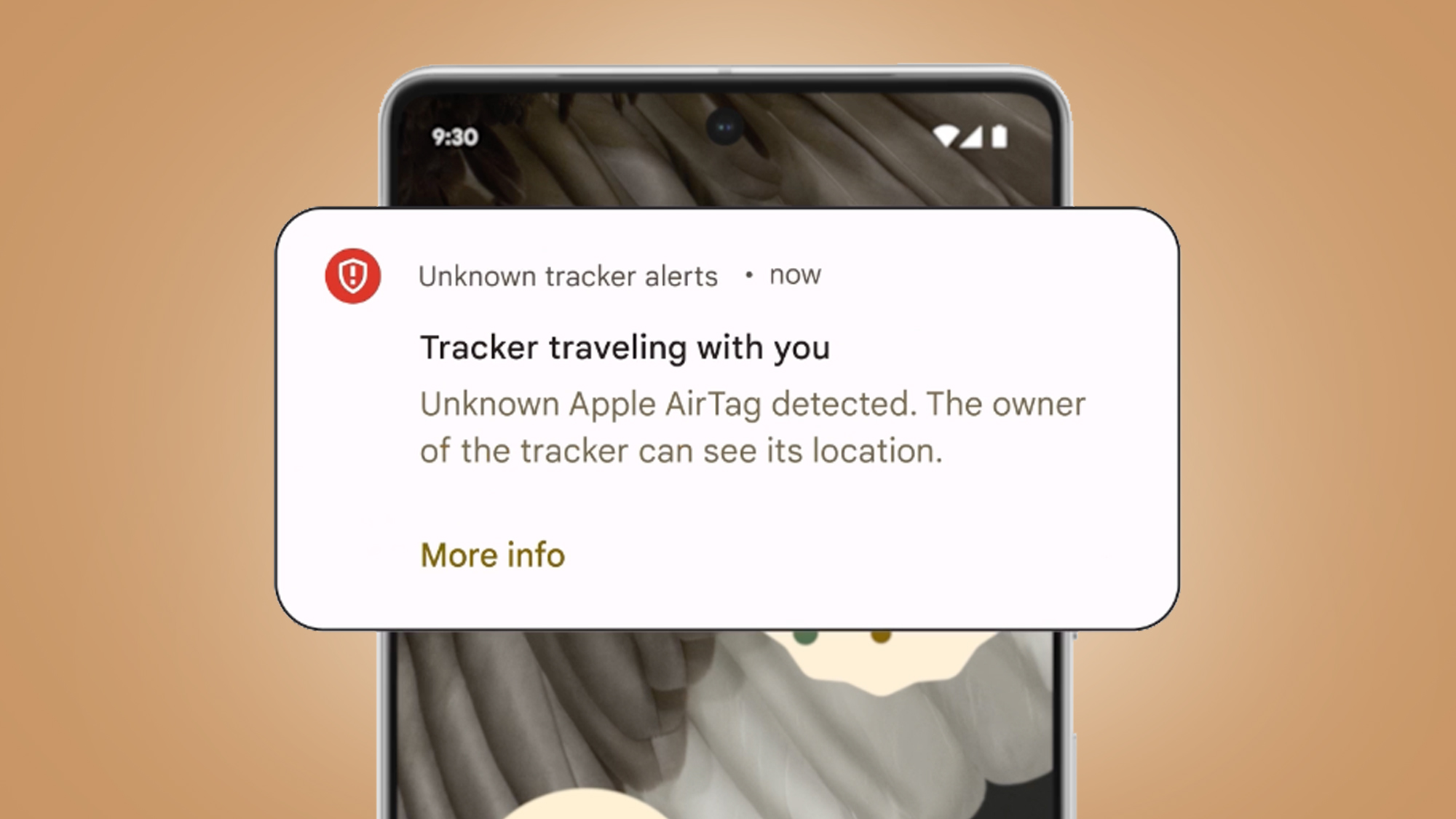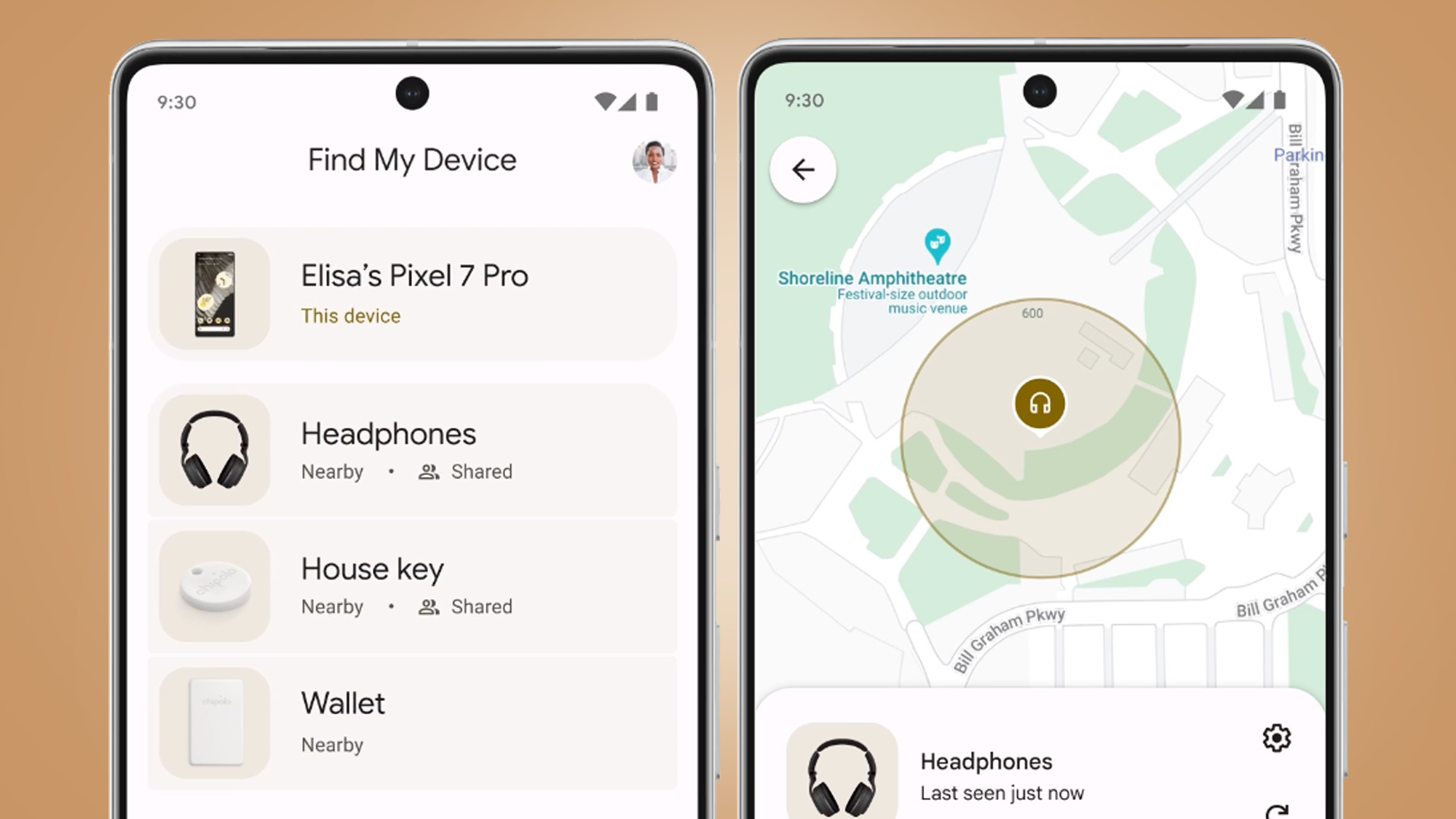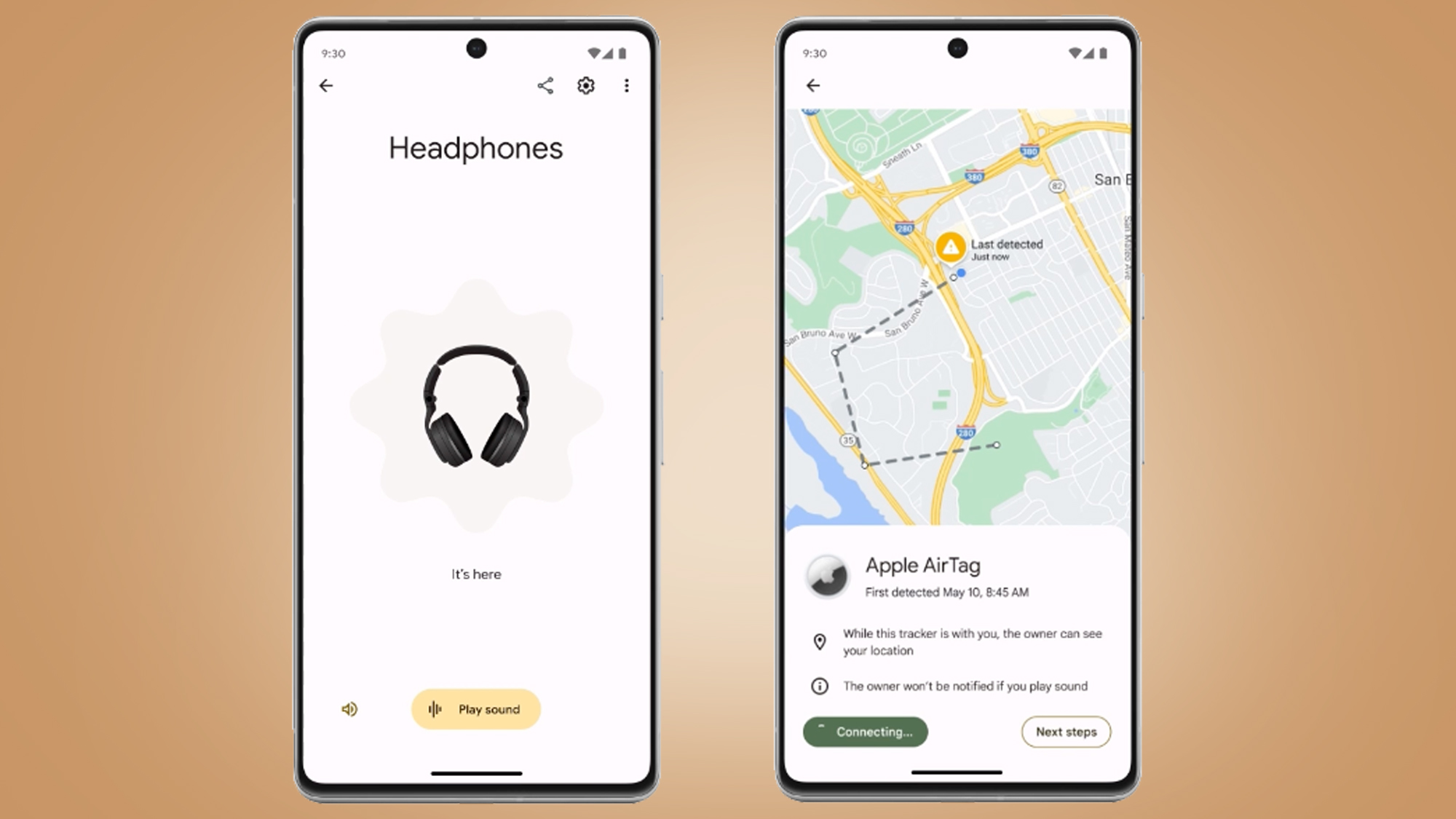Android's big Find My Device upgrade is as controversial as it is useful
Can Google escape the AirTag's privacy concerns?

Google has announced a big update to the Android Find My Device network, which will soon help you track valuables using third-party Bluetooth trackers – and also warn you about unwanted nearby Apple AirTags.
Like Apple's 'Find My' network, Google's "major update" to its existing Find My Device feature will anonymously use billions of Android devices around the world to help you track down lost or stolen items, even when they're offline.
Google used the example of accidentally leaving your headphones at the gym – when the 'Find My Device' update rolls out "later this summer", you'll theoretically be able to use other nearby Android devices to find them.
Because Find My Device will soon work with third-party Bluetooth trackers from the likes of Tile and Chipolo, you'll also be able to use those to keep track of other valuables like your bicycle or suitcase.

Naturally, a tracking network built on billions of Android devices raises some privacy concerns. Google was keen to stress that it's "taken some time to get this right," which is something of an understatement – Google's current 'Find My Device' app arrived six years ago at Google I/O 2017 and we've heard rumors of a big update for the last two years.
Like Apple's Find My network, Google says location information is encrypted on the new Find My Device network, which means no one (including Google) can tell where your devices are located. But the bigger headline, which Google teased by announcing its partnership with Apple earlier this month, is the introduction of 'Unknown tracker alerts' on Android.
This means your Android phone will tell you if an unrecognized tracking tag is moving with you, and will also help you find it. Thanks to that new standard that Google agreed with Apple, these alerts will work across all phones – including iPhones.
Sign up for breaking news, reviews, opinion, top tech deals, and more.
Google says that this new Find My Device experience and 'Unknown tracker alerts' will be launching "later this summer".
Analysis: Android becomes the world's biggest tracking network

Android has long had a very limited 'Find My Device' feature that's been based on your device's most recent known location.
But this update takes it to a whole new level, effectively turning over three billion Android devices into the world's biggest object-tracking network – and for all the benefits, the feature will likely prove controversial when it fully launches later this year.
Google was keen to stress two features that should help calm fears that this kind of tracking could be exploited by bad actors – the full encryption of location information, and those 'Unknown tracker alerts' that are based on the new standard it's created with Apple.
But despite Apple's attempts to reduce the growing number of headlines about AirTag stalking, it hasn't managed to fully convince everyone that Bluetooth trackers aren't open to misuse. And these controversies could be taken to the next level when the upgraded 'Find My Device' feature rolls out.
While the belated creation of a cross-platform standard for 'Unknown tracker alerts' is a good move, we'll have to see how well it works in practice before filling our lives with Bluetooth trackers.

Mark is TechRadar's Senior news editor. Having worked in tech journalism for a ludicrous 17 years, Mark is now attempting to break the world record for the number of camera bags hoarded by one person. He was previously Cameras Editor at both TechRadar and Trusted Reviews, Acting editor on Stuff.tv, as well as Features editor and Reviews editor on Stuff magazine. As a freelancer, he's contributed to titles including The Sunday Times, FourFourTwo and Arena. And in a former life, he also won The Daily Telegraph's Young Sportswriter of the Year. But that was before he discovered the strange joys of getting up at 4am for a photo shoot in London's Square Mile.